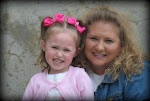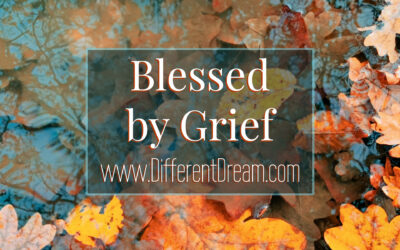No Longer a Thief, Pt 1: Special Needs Can’t Steal Love

Guest blogger Amy Stout is an expert about special needs parenting, thanks to her daughter Kylie who experiences autism. But her expertise rose to a whole new level when her beloved grandma developed dementia. In this two-part series, Amy tells how special needs were not able to steal the love between her daughter and the little girl’s great-grandmother. Today, in Part 1, Amy introduces us to her delightful grandmother.
No Longer a Thief, Part 1
Share the best moments of your life with your children as often as you can.
Someday when your memory will fail they will be happy to share them with you.
-H.Tuller
One of my favorite memories of my grandma was also one of the hardest times in my family’s life. My father was about to lose his job in a very public way. Grandma traveled many hours (and by herself) to be with us on the day we would learn if he had a job or not. When the worst of all possible scenarios occurred, she was there to help us pick up the pieces and to console our aching hearts.
That entire weekend, she was stability and comfort for our family. She taught my sisters and me how to play the game SkipBo and we stayed up until the wee hours of the morning playing and laughing so hard that tears traced patterns on our faces. We thought it was so amazing and wonderful that someone Grandma’s age would stay up with us that late! For a few glorious moments we forgot the fear and ache that filled our hearts!
When we finally retired to get a few hours of sleep, we collapsed in gales of laughter when we realized that before going to bed, my daddy (who was emotionally exhausted from the events of the weekend but who had mustered up an extra ounce of fun) had rigged all of our bedroom doors (including Grandma’s) with bang snap fireworks. As we all closed our doors to embrace much needed slumber, the small fireworks went off! We were so shocked and surprised that my grandma, sister, and I had to make great effort to not mess our bloomers (but our laughter surely woke up the house!)
Those were the best of times with my grandma and it was a very meaningful time for our family.
As the oldest of the grandchildren, I was blessed to have many wonderful years of memories with my grandma—memories that would sustain the aching of my heart when I could no longer wrap her in a warm embrace.
It was a cavernous loss we all were experiencing, she was right in front of us, yet she was not. She was lost in the recesses of her mind, her memories all jumbled, faces and names all confused.
My grandma (or Mamaw as many of us called her) had transformed into a tiny replica of herself, however even on the days when she was trapped deep within the fog of dementia, the best parts of Grandma were still there.
She may not have known any of our names and she mistook her son or sons-in-law for her precious husband whom she mourned terribly, but she was a sweet, happy lady always bringing smiles to the staff and fellow residents.
Grandma would tell anyone who visited that “Daddy”, her late husband who had been an avid outdoorsman, was out at the fishing hole. There was just something warm and consoling about the idea that he would be coming home soon and we allowed her to live in that repeated fantasy that seemed to keep her so calm and comforted.
I wanted desperately for my preschool daughter to know my grandma (her great-grandma). The tricky part was that my daughter experiences autism, and Grandma experienced a diagnosis similar to Alzheimer’s.* I just wasn’t sure how we could possibly build a relationship with the challenges that would surely present themselves with the marriage of those two diagnoses. How would I possibly bridge the gap between loved one and stranger, a 70+ year-old and a 5-year-old, and a person experiencing memory loss/ confusion and a person experiencing autism?
Can You Identify with Amy’s Story?
Have you experienced a similar situation between your child with special needs and an elderly loved one? Please tell us about your special people in the comment box.
*Grandma’s actual diagnosis was multi-infarct dementia. The primary difference between Alzheimer’s and multi-infarct dementia is that those diagnosed with Alzheimer’s have a gradual decline in cognitive and functional abilities. They and their loved ones know it is coming and have time to prepare. My grandma’s condition occurred quite suddenly after a series of strokes. She and our family did not have those precious moments in time to prepare mentally and emotionally or to say our goodbyes while she was still mentally and emotionally with us; it was thrust upon us all quite suddenly. Her sudden transition from capable matriarch to childlike patient was quite devastating and caused a grief that was difficult to reconcile. But then… this story came to be and God gifted my grandma and my daughter with a precious and rare gem of an experience in the midst of tragedy.
Do you like what you see at DifferentDream.com? You can receive more great content by subscribing to the quarterly Different Dream newsletter and signing up for the daily RSS feed delivered to your email inbox. You can sign up for the first in the pop-up box and the second at the bottom of this page.
Photo Credit: www.stock.xchng

By Amy Stout
Amy Stout is a wife, mother, and free-lance writer. You can visit her website at His Treasured Princess.
Subscribe for Updates from Jolene
Related Posts
This Thanksgiving I’m Grateful for Grief
“This Thanksgiving, I’m grateful for grief” is not something you hear a lot. Jolene explains why this is her heart this Thanksgiving.
The Power Names Have for Kids with Disabilities and Special Needs
Guest blogger Heather Braucher explains the power names have for kids with disabilities and special needs.
November is Caregiver Awareness Month
November is Caregiver Awareness Month, and Jolene takes a minute to give let you know how you can help caregiving families.






0 Comments